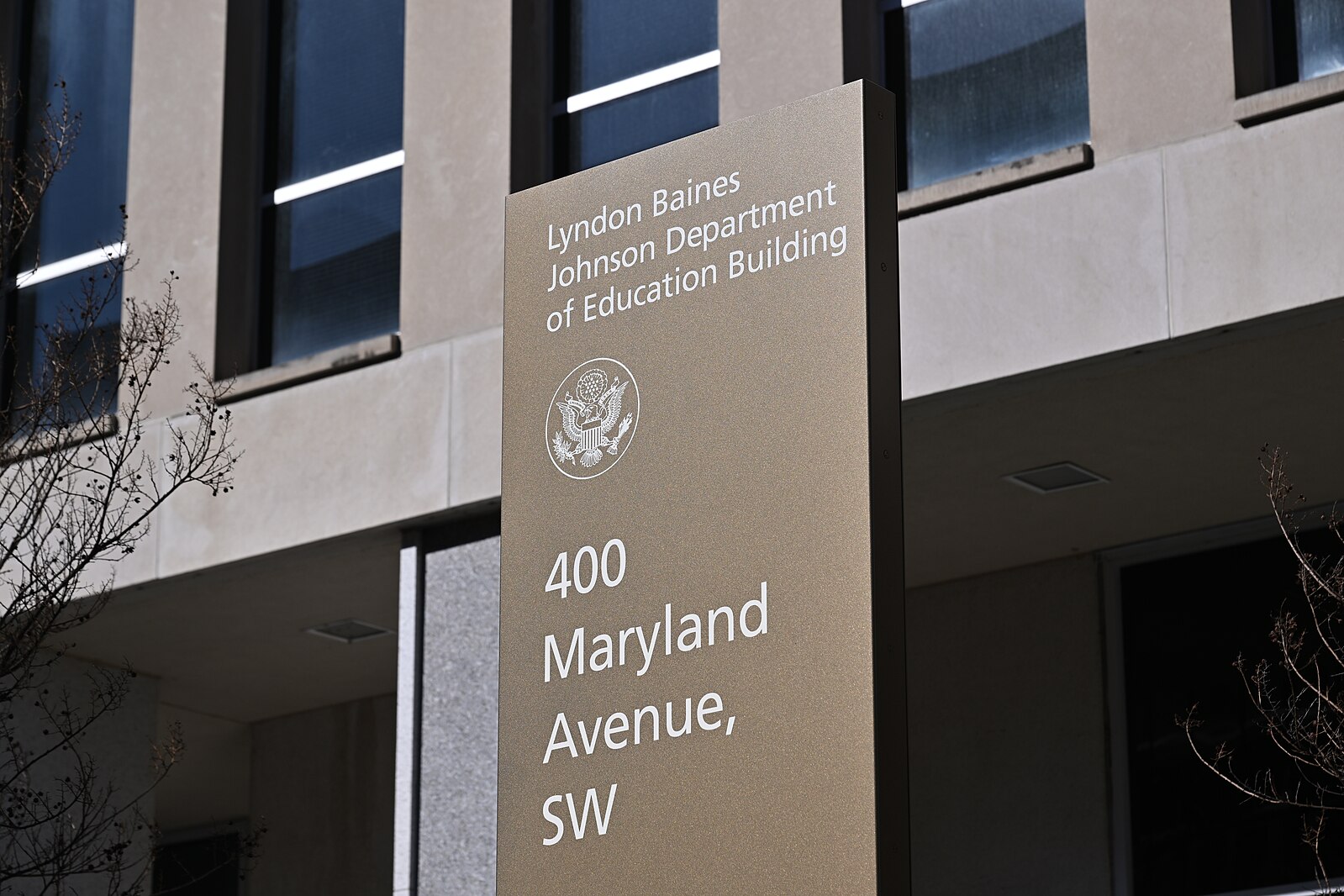Education Department instructs universities to end all race-conscious programs
The Department of Education warned that universities that do not suspend diversity, equity and inclusion initiatives and practices within two weeks could lose federal funding.

G. Edward Johnson (Wikimedia Commons)
On Feb. 14, the Department of Education instructed schools and universities across the United States to suspend diversity, equity and inclusion, or DEI, practices and race-conscious initiatives within two weeks or face the possibility of losing federal funding.
The announcement, released as a “Dear Colleague” letter on Friday, cites the Students for Fair Admissions v. Harvard case — a 2023 Supreme Court ruling that prohibited race-based affirmative action in college admissions — as legal grounds for the letter’s arguments and guidance.
“Federal law thus prohibits covered entities from using race in decisions pertaining to admissions, hiring, promotion, compensation, financial aid, scholarships, prizes, administrative support, discipline, housing, graduation ceremonies, and all other aspects of student, academic, and campus life,” the letter reads. “Put simply, educational institutions may neither separate or segregate students based on race, nor distribute benefits or burdens based on race.”
The DOE letter further stated that all “covert racial discrimination” through DEI and “race-based decision-making” is considered illegal and orders schools to end such programs. The letter also instructs schools to “cease all reliance on third-party contractors, clearinghouses, or aggregators that are being used by institutions in an effort to circumvent prohibited uses of race.”
It is not clear how the Education Department’s letter could affect Yale’s DEI policies. Duncan Hosie LAW ’21, an appellate lawyer, said the Dear Colleague letter extends the Students for Fair Admissions case beyond its intended scope. He noted the letter’s ambiguity, noting that its rhetoric is “relatively capacious” and often fails to specify which programs would be prohibited.
Hosie also expects there would be legal challenges from universities and other educational institutions if funding was cut.
Hosie believes that the announcement is an attempt to intimidate institutions and discourage DEI efforts. Some institutions, including Harvard University, the University of Pennsylvania and Vanderbilt University have begun to remove DEI initiatives and statements from their websites following the threat of federal funding being pulled.
“It would be devastating if [DOE] withheld funding, particularly given the lack of clarity and this Dear Colleague Letter and the ruinous precedent that would establish for federal governmental control over higher education institutions,” said Hosie.
In an email to the News, University President Maurie Mcinnis wrote that the University has been working to understand the scope and implications of the letter’s guidance.
McInnis previously emphasized to the News that determining the impact of executive orders on Yale will take time before the University is able to respond. Yale is creating pop-up task forces to understand the orders as they are issued from Washington.
Hosie noted that the letter seems to prohibit universities from considering personal statements in the college application process. It echoes concerns voiced by critics of affirmative action that universities have used the personal essay to circumvent the Supreme Court’s decision.
The Supreme Court majority opinion by Chief Justice John Roberts in SFFA v. Harvard specified that schools could evaluate a student’s application based on their “experiences as an individual,” without considering their race.
“Nothing in this opinion should be construed as prohibiting universities from considering an applicant’s discussion of how race affected his or her life, be it through discrimination, inspiration, or otherwise,” Chief Justice John Roberts wrote in the majority opinion.
Addressing the letter’s implications for cultural centers and student organizations devoted to a particular identity or culture, Hosie said that “nothing” in the Supreme Court’s decision would require these institutions be dismantled.
However, he said that the letter’s arguments suggest that the DOE would appear to view such groups as unconstitutional. Hosie noted that in some states, schools are already operating under anti-DEI policies and had seen the closure of multicultural centers.
“There is a credible case based on the contents of this sweeping letter, that the Department of Education under the Trump administration views multicultural centers and student organizations devoted to particular ethnic or cultural identity as being unconstitutional,” he said.
Hosie added that the letter prohibits graduation celebrations dedicated to a specific constituency or demographic. Yale’s Afro-American, Asian American and Latine Cultural Centers have hosted individual graduation ceremonies in addition to a general graduation for the class.
According to Hosie, under the letter’s interpretation of the law, these practices would be considered unlawful.
Hosie noted that the Trump administration has previously used executive action that is “overly sweeping” and, through subsequent revisions, found a version that conservative judges “find palatable.” Hosie cited the travel ban against certain Muslim-majority countries during Trump’s first administration as an example.
Trump has promised to shut down the Department of Education. A planned executive order yet to be signed by the President orders the Department of Education to wind down operations and urges Congress to abolish the department.
However, Hosie told the News that he does not expect the administration to dismantle the DOE but to shift resources and eliminate certain core programming that does not align with Trump’s vision.
“This letter weaponizes the Department of Education against institutions of higher education,” said Hosie, “It shows that the goal of the Trump administration is not to disband the Department of Education, but use it as a political tool to further its reactionary agenda.”
The Civil Rights Act was signed into law on July 2, 1964.







